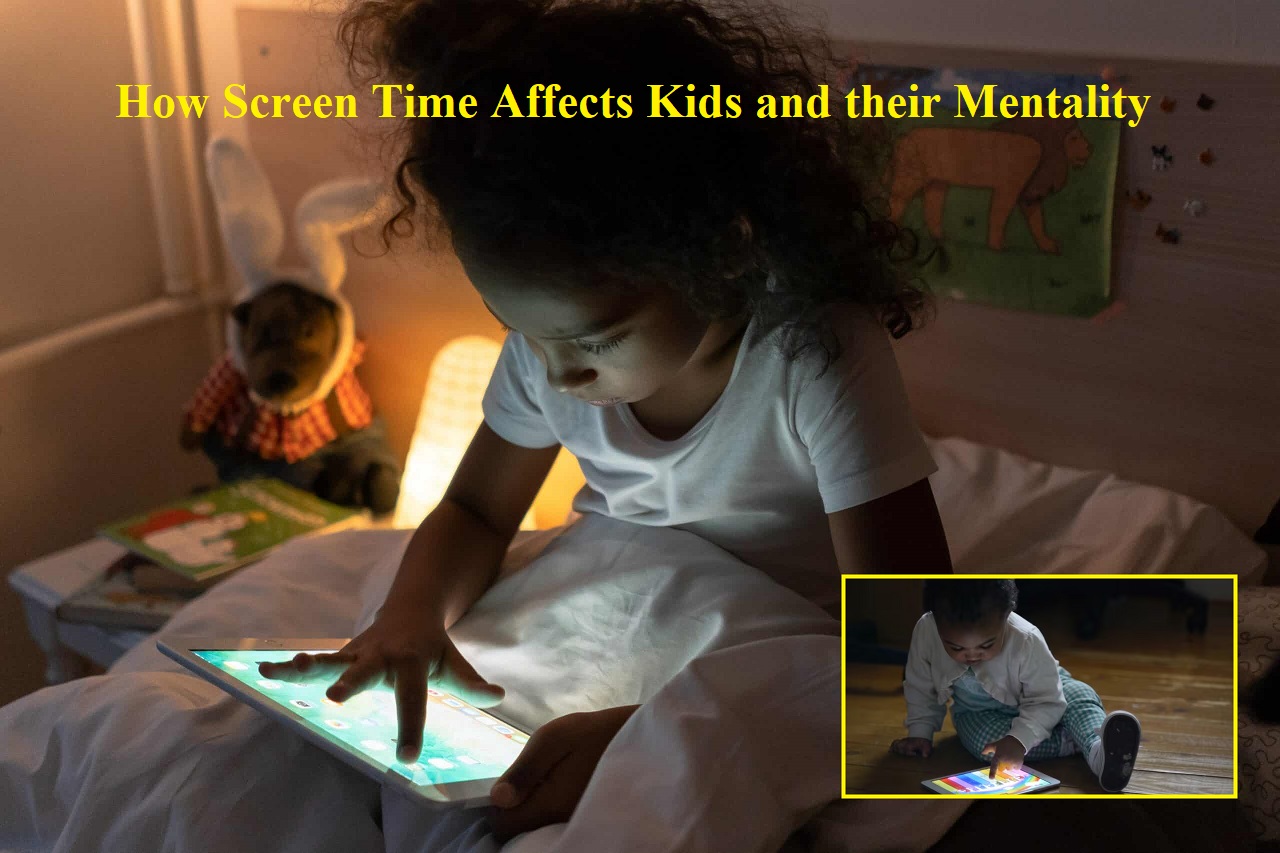- FREE Express Shipping On Orders $99+

How Screen Time Affects Kids and their Mentality
Screen time has significant effects on children’s mental health and well-being. Research suggests that excessive screen time can lead to a range of negative outcomes, including increased anxiety and depression, lower psychological well-being, and higher risks of mental health issues such as depression and anxiety disorders. It is crucial for parents and caregivers to be aware of the potential risks associated with excessive screen time and take steps to manage and limit their children’s screen use to promote healthy mental development.
Key Findings
-
Anxiety and Depression
Children who spend more than seven hours a day on screens are twice as likely to show signs of anxiety and depression.
-
Screen Time and Mental Health
Higher screen time is associated with lower psychological well-being, including lower self-control, more distractibility, and difficulty making friends.
-
Screen Time and Depression
High users of screens (7+ hours a day) are more than twice as likely to have been diagnosed with depression compared to low users (1 hour a day).
-
Screen Time and Anxiety
High users of screens are also more likely to have been diagnosed with anxiety compared to low users.
-
Screen Time and Sleep
Excessive screen time can disrupt sleep patterns, which can further exacerbate mental health issues.
Recommendations
-
AAP Guidelines
The American Academy of Pediatrics recommends no screen time for children under two years, no more than one hour for children aged two to four, and no more than two hours for children aged six to eighteen.
-
Parental Controls
Parents should set limits on screen time, use parental controls, and monitor their children’s screen use to ensure healthy habits.
-
Alternative Activities
Encourage alternative activities that promote positive development, such as parent-child play activities, to reduce the negative impacts of excessive screen time.
Screen Time and Parents Activities
Parents play a crucial role in managing their children’s screen time. The vast majority of parents (86%) limit when and how long their child can use screens. Common strategies include setting time limits, using parental controls, and taking away screen privileges as punishment. Many parents also struggle with their own screen use. Over half of parents (56%) say they spend too much time on their smartphones, which can distract from quality time with their children. Parents’ concerns about excessive screen time are higher among those with younger children. This led to feelings of guilt and internal conflict for some parents. However, parents also found positive uses for screens, such as facilitating remote learning, social interaction, and family bonding. Experts recommend developing a family screen time plan, setting consistent limits, co-viewing content, and prioritizing offline activities. Parents should consult their pediatrician if they have ongoing concerns about their child’s screen habits.
The Most Effective Strategies for Parents to Limit Screen Time
-
Setting Boundaries from an Early Age
Establishing screen time limits from a young age helps children develop healthy habits and accept boundaries more easily.
-
Implementing Strategies in Daily Life
Use various strategies such as setting screen-free times, engaging in alternative activities, and tracking progress to reduce screen time.
-
Providing Alternative Activities
Offer alternative activities like physical exercise, hobbies, and outdoor play to reduce the temptation to use screens.
-
Setting Realistic Goals and Tracking Progress
Identify and track screen time, set achievable goals, and gradually reduce screen time to ensure success.
-
Parental Monitoring and Engagement
Use technology to monitor and control screen time, and engage with your child in activities that promote mindfulness and awareness.
-
Restrictive Practices and Alternative Activities
Restrict screen time and offer alternative activities to parents, and remove screens from the child’s bedroom to reduce screen time.
-
Setting Time Limits and Establishing Routines
Set screen time limits and establish routines to maintain consistency and discipline.
Benefits to Screen Time for Children’s Cognitive Development
There are potential benefits of screen time for children’s cognitive development when used in moderation and with appropriate content. Educational apps and games can stimulate problem-solving skills and enhance cognitive development in children. Interactive screen time that involves critical thinking is considered beneficial, while passive screen time like aimless scrolling can have negative effects. The virtual universe provides many resources and learning opportunities that can boost a child’s cognitive skills. Screen time can be used to develop digital skills, creative thinking, problem-solving, communication, social skills, motor skills, and goal-setting. Video editing helps build digital skills, coding games strengthen problem solving, and online language apps improve communication and cultural knowledge. The type of screen time is crucial – educational screen time has been shown to be the most beneficial, while social media and passive screen time can have negative impacts. Excessive screen time is concerning, but when used for education, it can be advantageous.



















